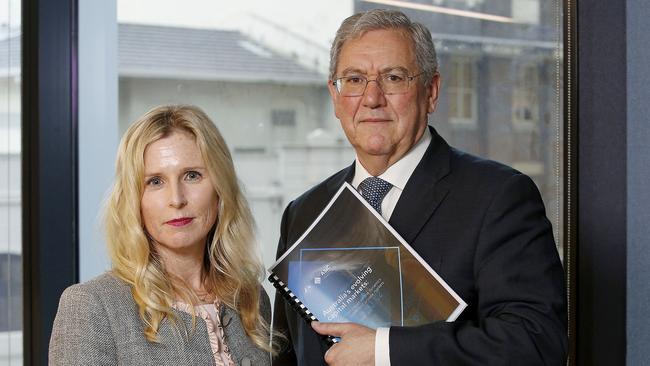Financial Services Council urges ASIC to make cautious changes in private markets rules
The FSC has revealed its 101-page submission to ASIC’s review of private markets. As part of its review, ASIC must examine what is driving investors away from public markets, towards private options.

Business
Don't miss out on the headlines from Business. Followed categories will be added to My News.
Changes to the rules governing how private markets operate should be modest, according to the Financial Services Council, which asked for reforms focused on improved governance and disclosures to be countered by lower regulatory penalties.
In its submission to the Australian Securities and Investments Commission’s review of private markets, the FSC asked the regulator to not only focus on potential changes governing unlisted investments, and instead review what can be done to make publicly listed opportunities more attractive.
ASIC is preparing to publish the responses to its report examining the growing world of private markets, which has garnered interest from every corner of the investor universe.
The regulator released its findings in February, canvassing a number of potential issues across public and private markets.
Offering 67 recommendations to ASIC’s review, the FSC said it was seeking to strike a balance in ensuring any changes aligned with the regulator’s mandate to improve the performance of the financial system and promote informed investment.
The FSC said its submission aimed to “demystify private markets”, underlining a focus on improving valuation processes, as well as streamlining issues management and better investor treatment.
FSC boss Blake Briggs said ASIC must ensure it acts “cautiously to avoid unnecessarily distorting the capital mix in the Australian economy and adversely impacting the investment returns that benefit many Australians”.
“The Treasurer has prioritised productivity growth for the Albanese government’s second term,” he said.
“We must ensure regulatory settings align with this goal and do not impose an unintended chilling effect on the domestic economy.”
Mr Briggs, who has headed the FSC since January 2022, said the group’s recommendations “build on the existing robust regulatory framework”.

Key changes recommended by the FSC include independent assurances in the valuation process separate to that of the relevant investment team.
The FSC says investment teams, ideally, should not be present on valuation panels.
The FSC also suggests lifting the frequency of valuations as well as requiring funds to pre-emptively set triggers to reassess the value of assets.
The FSC also zeroes in on governance issues, calling for ASIC to focus on pushing the industry to lift disclosures of conflicts of interest.
The disclosure of fees, fee structures, performance metrics, the preferential treatment of investors, and the use of leverage are all cited in the FSC’s submission.
Funds should retain the “flexibility” to design their own fee structure, but it notes they should be clearly detailed.
The peak body picks up on the proliferation of so-called “side letters” in funds, noting retail investors should be protected from deals where the investment manager cuts a trade with other parties, unless this is disclosed.
The FSC says ASIC should not seek changes to rules governing Managed Investment Schemes, nor should its recommendations be read in reference to them.
And prudential controls should not be imposed on private credit funds “given that they have a legitimate role to play in financing activities, including but not limited to circumstances where a bank is not able or willing to do so”.
Some private lenders already report to the Australian Prudential Regulation Authority.

ASIC should be encouraged to review regulatory obstacles to make it easier for foreign credit rating agencies to enter this market, the FSC said.
As part of its review, ASIC must examine what is driving investors away from public markets, towards private options.
“To make public listings more attractive, the burden on public markets should be lowered to improve the attractiveness of public markets, rather than creating similar complexity in private markets and decreasing their attractiveness.
“Opportunities to achieve this involve simplifying and clarifying the legal framework for corporations and financial services, as well as exploring unrealised potential in public debt as well as equity markets.”
The FSC also ruminates on Australia’s harsh regulatory penalties, warning they had a “chilling effect” on public markets. Fines can run up to $16.5m, three times, or 10 per cent of turnover up to $825m, after changes in March 2019.
“Until there is reform to streamline and simplify legislation governing public markets, this unwieldy and highly complex framework will continue to deter listing on public markets, holding back market capitalisation and constraining opportunities to invest in listed equities,” the FSC said.
More Coverage
Originally published as Financial Services Council urges ASIC to make cautious changes in private markets rules





